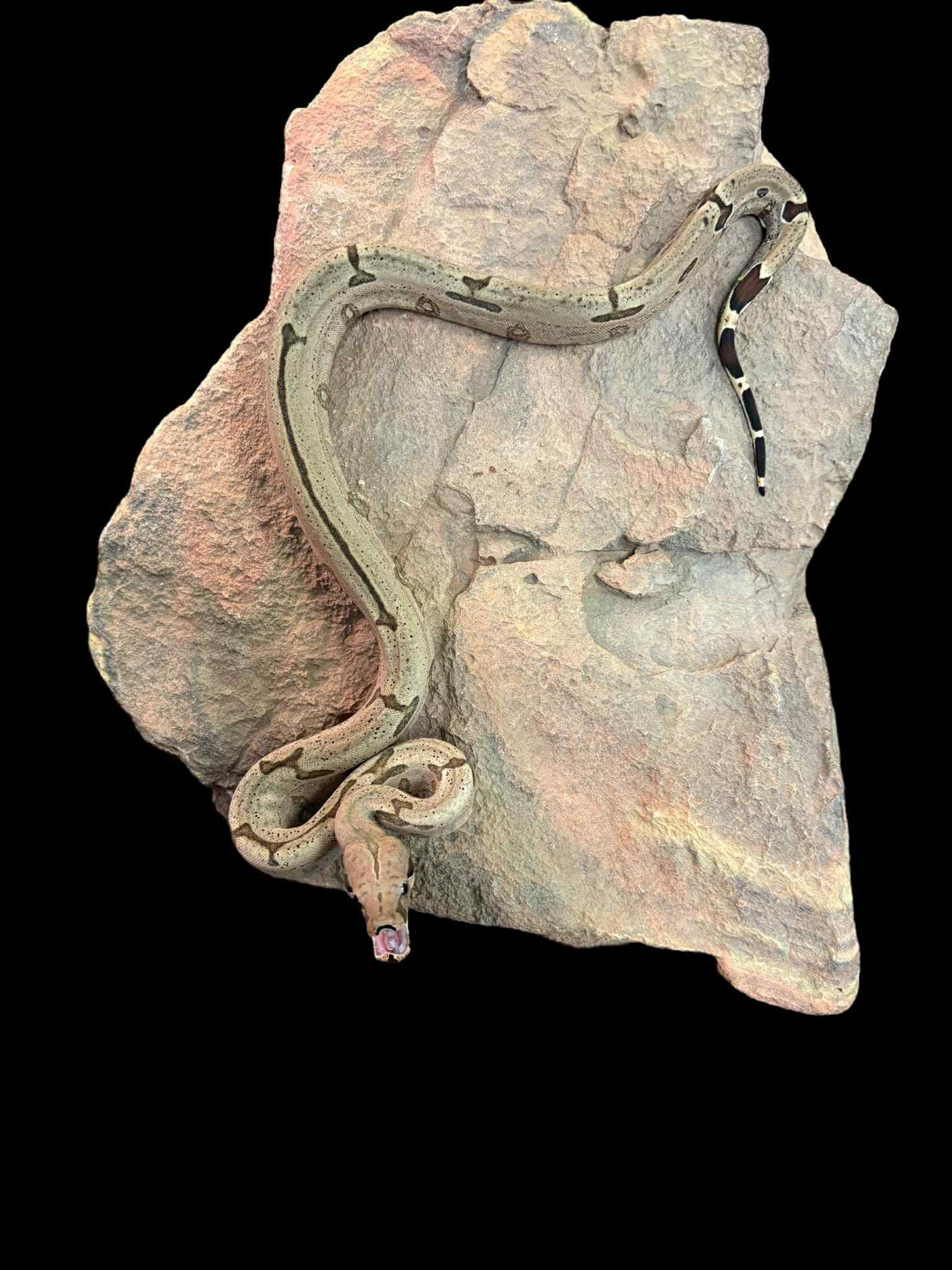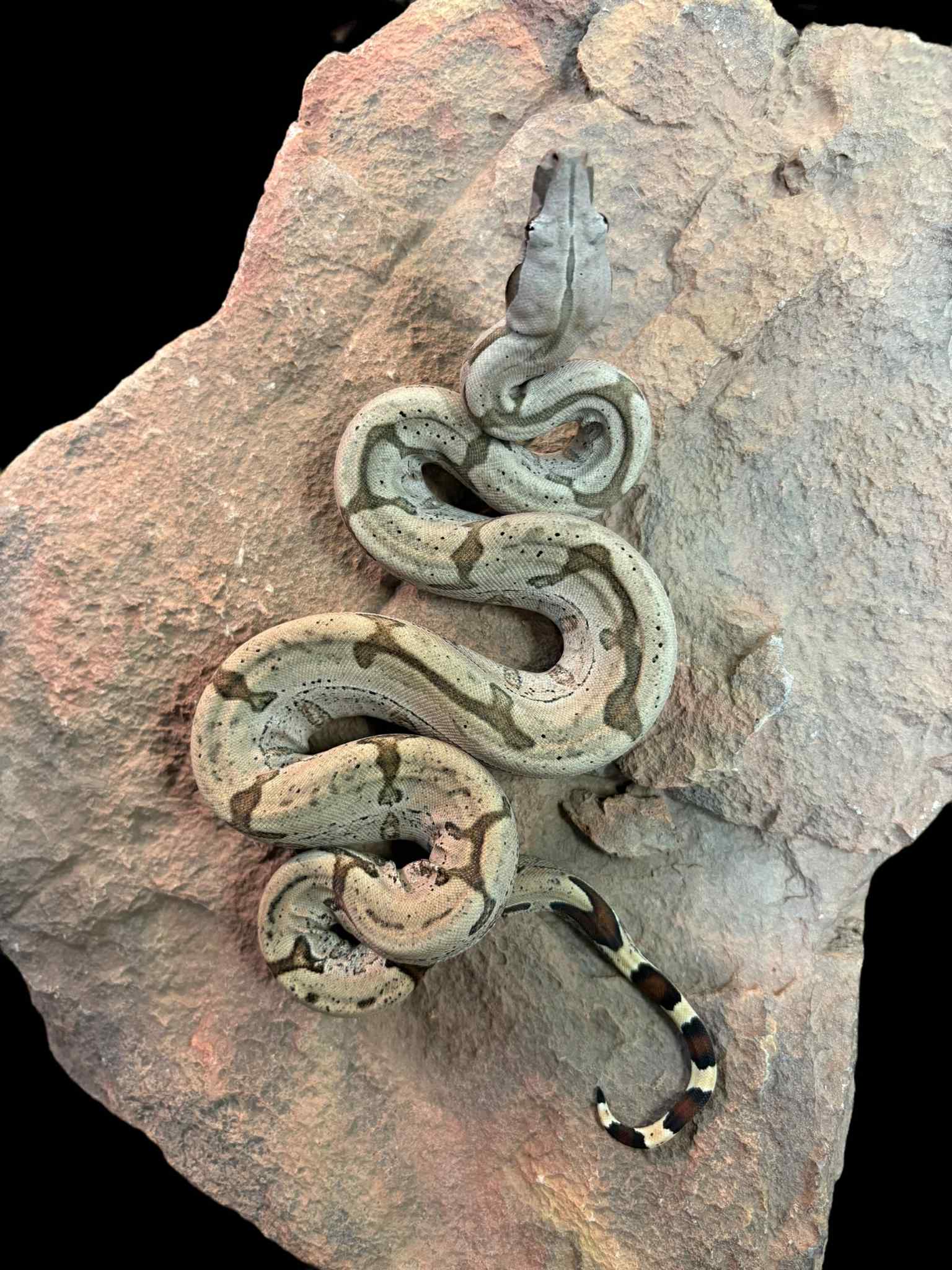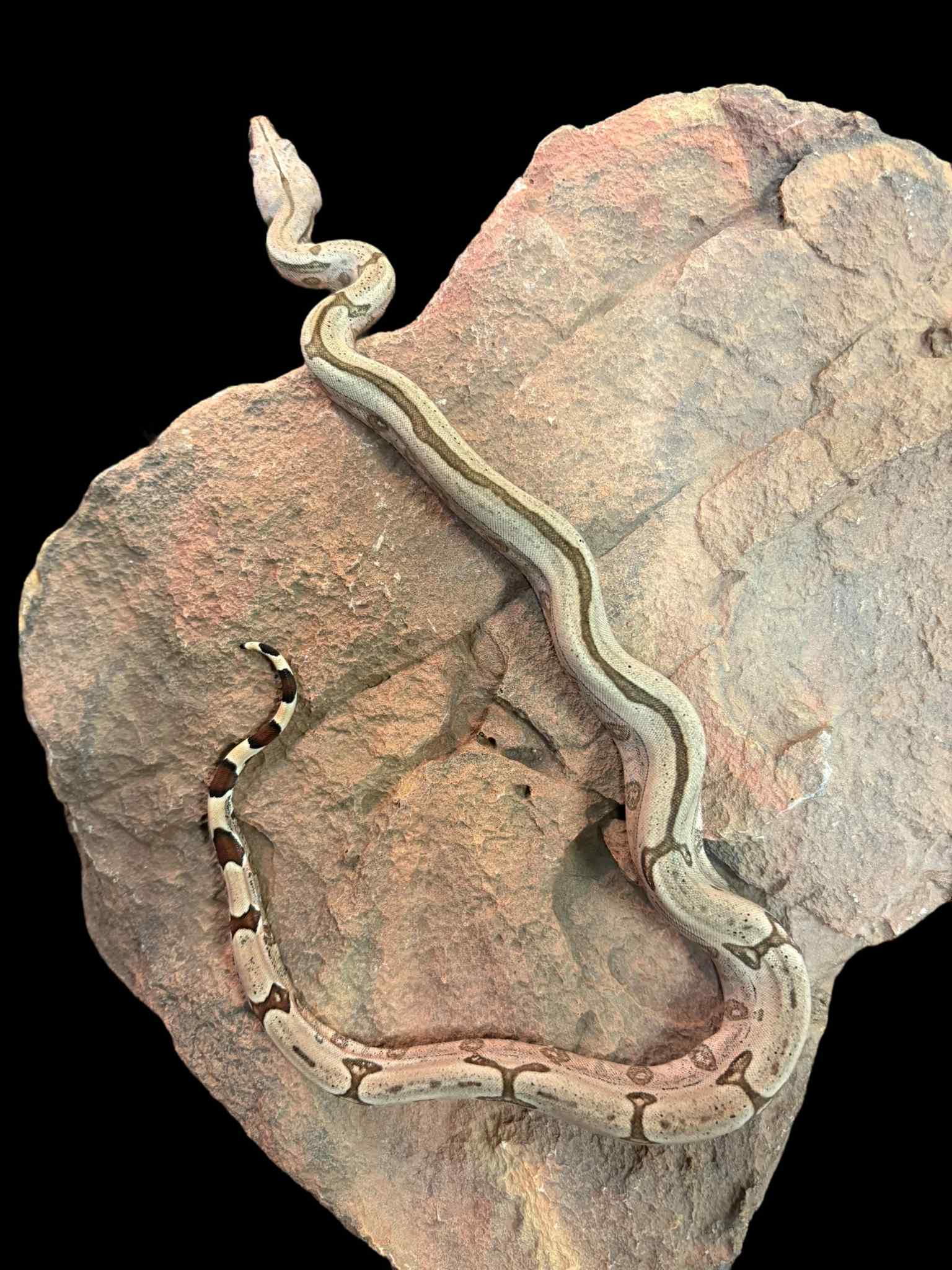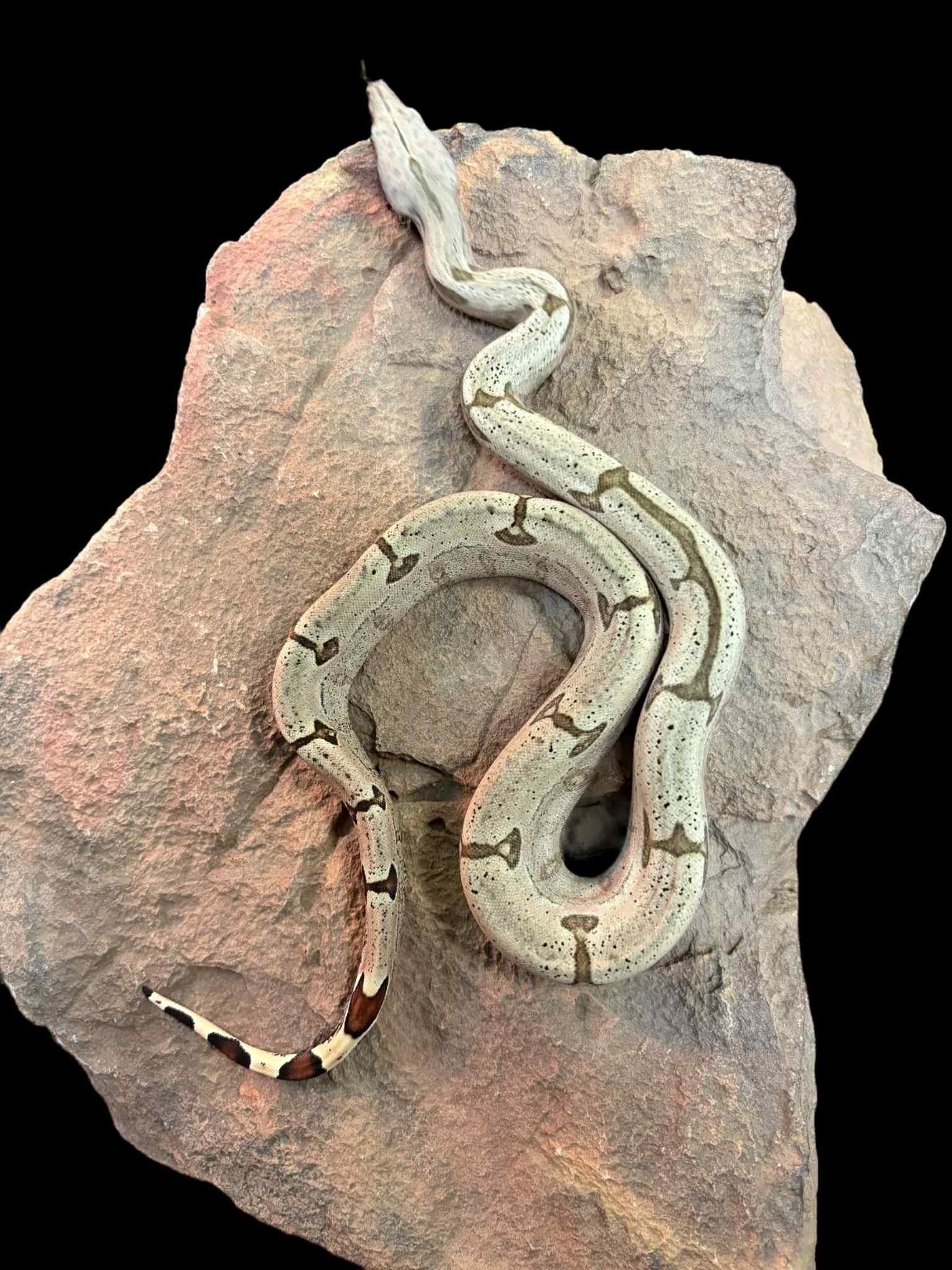Photo Disclaimer
Description
Bolivian Boa (Striped)
Scientific Name: Boa constrictor amarali
Common Name: Bolivian Boa, Striped
Species Overview
Size: Adults typically reach 5–7 feet (1.5–2.1 m) in length, with females slightly larger than males. Adult weight ranges from 15–25 pounds, reflecting a compact, muscular build.
Appearance: This Bolivian Boa exhibits a distinctive striped pattern along the body, often with longitudinal lines or reduced saddles. Base coloration is typically dark brown to chocolate, with the stripes creating a visually striking effect. The body remains stocky and muscular, characteristic of the subspecies.
Distribution: Native to central Bolivia, commonly found near forests, scrublands, and rivers.
Habitat: Inhabits tropical and subtropical forests, semi-arid regions, and riverine environments. Adapted to seasonal fluctuations in humidity and temperature.
Behaviour: Primarily nocturnal ambush predators. Juveniles may climb low vegetation, while adults remain mostly terrestrial. Generally calm but physically strong.
Captive Care
Enclosure: A naturalistic setup is recommended. Adults should have a minimum enclosure of 4′ × 2′ × 2′ (122 × 61 × 61 cm), though larger individuals benefit from 5–6′ × 2′ × 2′ setups. Include multiple hides, sturdy branches, water dish, and visual barriers. Soil or mulch substrates support humidity and natural behaviours.
Temperature and Humidity: Maintain ambient temperatures of 78–82°F (26–28°C), with a basking spot of 88–90°F (31–32°C). Nighttime temperatures may drop to 72–76°F (22–24°C). Humidity should remain between 55–70%, supported by a water dish for soaking.
Lighting: Standard ambient lighting on a consistent day–night cycle is sufficient. Low-output UVB is optional for planted or bioactive enclosures.
Diet: Juveniles feed every 7–10 days on appropriately sized rodents; adults feed every 14–21 days.
Behaviour in Captivity: Hardy and adaptable, with a generally calm temperament. Assisted handling is recommended for larger adults due to their muscular strength.
Special Considerations: The compact, muscular body and potential adult size require careful long-term housing planning. Assisted handling is strongly recommended.
Taxonomy Note
Boa constrictor amarali, the Bolivian Boa, is a distinct subspecies of Boa constrictor native to central Bolivia. It is characterised by a stocky, muscular build, darker earthy coloration, and patterns that may range from uniform to striped or reduced saddles. Wild populations occupy forests, scrublands, and riverine habitats, showing adaptability to both humid and semi-arid conditions. In captivity, Bolivian Boas retain the typical calm temperament, ambush predation behaviours, and adaptability of Boa constrictor, making them manageable with consistent care.
Genetics Note
Striped (Line-Bred / Polygenic Trait): The Striped trait in Bolivian Boas is achieved through selective breeding for elongated and reduced dorsal patterning. Snakes showing this trait may display a continuous dorsal stripe with minimal side patterning, but variability exists, and minor pattern elements may remain. This is not a formally documented single-gene recessive; rather, it is influenced by multiple alleles and selective line-breeding. Offspring may vary in pattern depending on the parents’ genetics and lineage.




